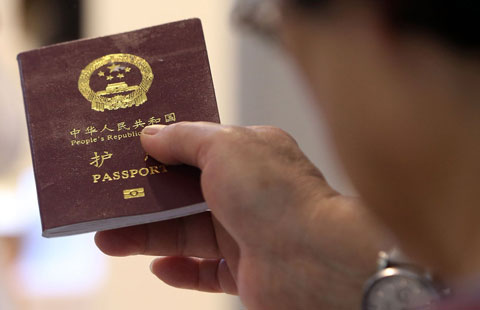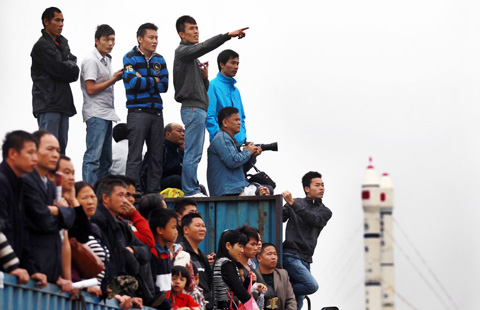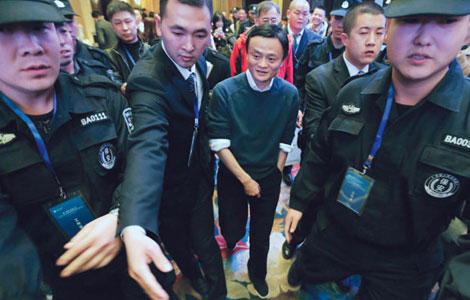Manila has no locus standi in sea case
Updated: 2014-12-11 07:54
By Zhou Jiang(China Daily USA)
|
||||||||
A Foreign Ministry document on the Philippines' move to take the South China Sea dispute to an international tribunal for arbitration reiterates that China will not accept, let alone participate, in such kind of adjudication. The document, issued on Sunday, explains why the tribunal has no jurisdiction over the dispute.
Aside from the greater issues Manila's arbitration request involves, the "mandatory arbitration" it is seeking before fulfilling some prior procedural obligations is also an important reason why the tribunal should not take up the case. According to Article 288 of the United Nations Convention on the Law of the Sea, whether or not a court or tribunal has jurisdiction over any dispute between parties depends on whether the dispute is submitted in accordance with part XV of the Convention. And Article 286 also says that any dispute on the interpretation or application of the Convention shall, where no settlement has been reached by recourse to section 1, be submitted at the request of any party to the dispute to the court or tribunal having jurisdiction under this section.
A study of the relevant clauses of the document shows Manila has not fulfilled the obligations of "settling the dispute by peaceful means" and "exchanging views with other parties to the dispute" before taking the dispute to the tribunal.
According to Article 279 of the Convention and Clause 33 of the UN Charter, peaceful means to resolve the dispute include talks, investigations, mediation, arbitration, judicial settlement and other peaceful means agreed to by the disputing parties. But despite the inclusion of "arbitration", the Article excludes "mandatory arbitration", which Manila seeks.
Article 279 states only sketchily that parties should settle a dispute on the interpretation and/or application of the Convention through peaceful means in accordance with relevant international documents, and Article 298 and other articles present supplementary statements on matters such as how to choose peaceful means. For example, Articles 280 and 281 encourage relevant parties to resolve their disputes peacefully through the negotiation means they agree to.
Article 279 does offer multiple ways for parties to resolve their disputes. It may be impractical to require a party to try all possible ways to bilaterally resolve a dispute before the "mandatory procedure" is launched, but going by established international practices, one party should at least hold talks with the other to resolve the dispute.
In the South China Sea case, the Philippines has sought the international tribunal's arbitration on as many as 13 items, although it has not held talks with China, as required by the articles and clauses of the Convention. Therefore, Manila's argument that it has abided by Article 279 and exhausted the possibility of resolving the dispute with Beijing through talks does not hold water. In fact, the Philippines has never earnestly responded to China's insistence that the dispute be settled through negotiations.
According to Article 283, when a dispute arises over the interpretation or application of the Convention, the disputing parties should proceed expeditiously to an exchange of views to settle it through talks or other peaceful means. The article also says the parties should expeditiously exchange views where a procedure for settling the dispute has been terminated without a settlement. This means disputing parties should exchange views before taking further action after the failure of negotiation procedures in order to avoid escalating the dispute owing to one party's extreme actions.
Manila's claim of having exchanged views with Beijing on the settlement of the South China Sea dispute on many occasions since 1995, as required by Article 286, is baseless. As stated by Article 286, the purpose for exchanging views is to choose suitable peaceful means such as talks and dialogue for the settlement of the dispute. But what Manila claims to be exchange of views with China since 1995 is only the "concrete contents of the dispute", which is essentially irrelevant to the peaceful means chosen to resolve the issue. Manila's other sets of evidence are also littered with such logical defects.
In short, the "peaceful means" chosen by parties for the settlement of any dispute through exchange of views do not include the "mandatory procedures". The article is aimed at preventing one party from pushing for mandatory, rather than non-mandatory, settlement of a dispute. Thus, Manila's claim that it has invited China to present the bilateral dispute to the international court for arbitration does not fall into the scope of the "exchange of views".
The fact remains that the Philippines has never even tried to fulfill its obligations to "settling the dispute by peaceful means" and "exchanging views with other parties". And the unilateral arbitration Manila seeks is in essence a contravention of the "priority application principle", as required by the Convention.
The author is a professor of international law at Southwest University of Political Science and Law, Chongqing.
(China Daily USA 12/11/2014 page12)

 Chinese passport opens more doors in 2014
Chinese passport opens more doors in 2014
 China faces: Glimpses of life and love
China faces: Glimpses of life and love
 Top 10 favorite gift brands of rich Chinese women
Top 10 favorite gift brands of rich Chinese women
 In photos: Group watching
In photos: Group watching
 Pictures of the year: Fashion
Pictures of the year: Fashion
 Across Canada Dec 10
Across Canada Dec 10
 Jack Ma in running for Time magazine Person of Year
Jack Ma in running for Time magazine Person of Year
 China: New climate change fund 'market-based'
China: New climate change fund 'market-based'
Most Viewed
Editor's Picks

|

|

|

|

|

|
Today's Top News
Xi chosen as 'Person of the Year' in Russia
Hypersonic tests target no specific country
Vermont, California, NYC tap into EB-5 program for money
Massacre survivors, relatives urge Japan to reflect in letter to UN
Facebook may need a partner to get into China
BOC adds to China's portfolio of NY property
Watchdog goes online to fight graft
China Construction Bank Toronto Branch Grand Opening Ceremony
US Weekly

|

|







